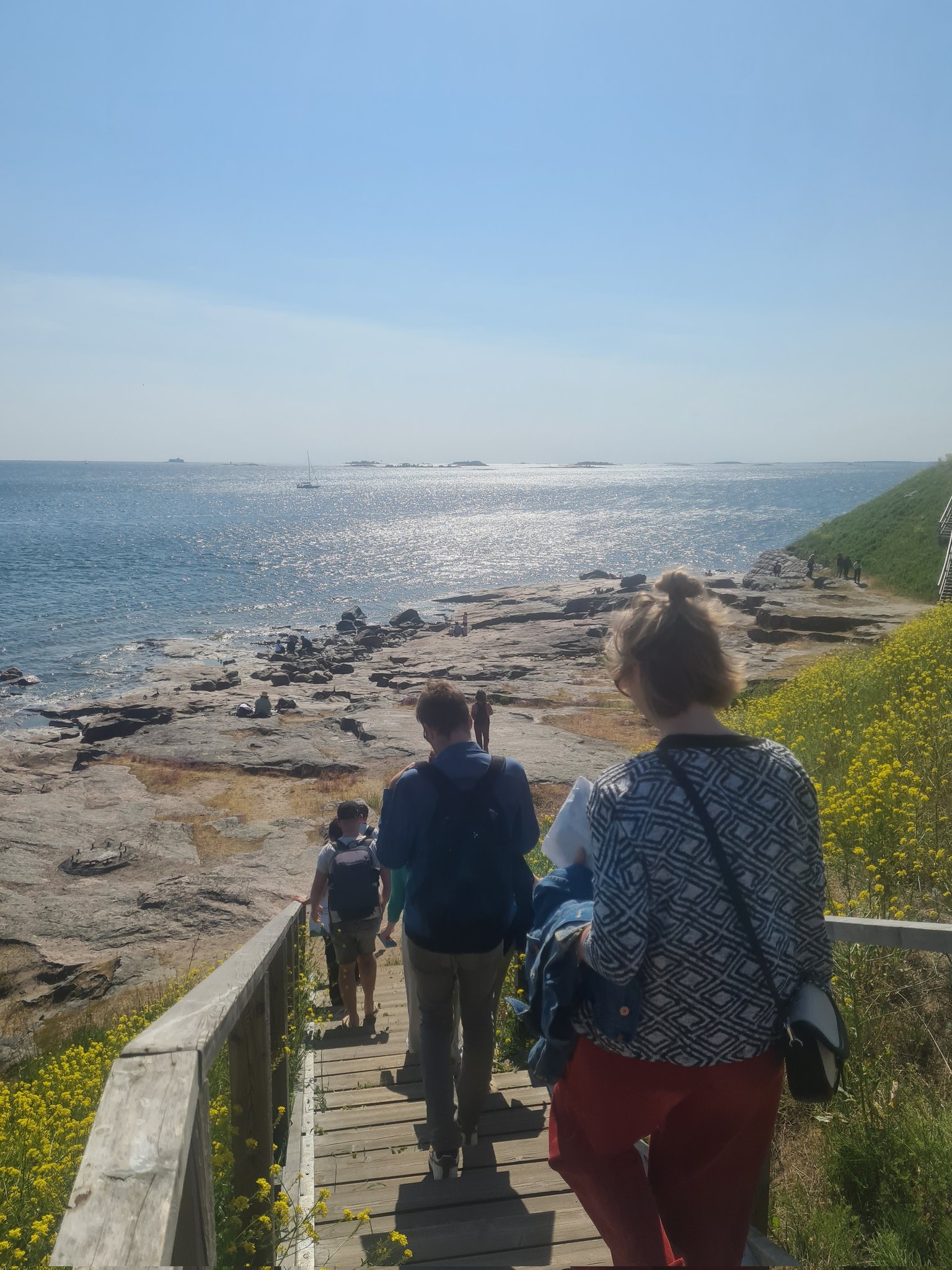—Is it the role of assessment to nurture confidence, competence, and a sense of identity?—
In June, I was offered a British Council studentship to head to Helsinki and attend the annual conference of the European Association for Language Testing and Assessment (EALTA). EALTA can claim something entirely unique in the field of language assessment: it is an unusually democratic space for dialogue and collaboration between colleagues. Professionals from rival institutions and corporations offer insights into their work which in other contexts they might be wary of sharing with others. Giants in the field make time to sit with ’emerging’ researchers – like myself – and offer encouragement, advice, and direction.
 –Tacos with the ever-inspiring Elana Shohamy–
–Tacos with the ever-inspiring Elana Shohamy–
Two keynote speakers listed on the programme had first drawn my attention to EALTA: Elana Shohamy, an outspoken pioneer of critical language testing, and Jamie Schissel, who has a longstanding and influential record of research in my own local context of southern Mexico. It is a wonderful thing to meet your role models in person – if somewhat nerve-wracking. I am profoundly grateful to Elana and Jamie for inviting me to join them for lunch and dinner on several occasions, sharing experiences both personal and professional, and inspiring me with so many nuggets of wisdom: “Focus on the long game: your research may take 20 years to come to fruition.” “Start off small with a sympathetic institution. When you get results, take them to local government.” “Publishing a paper is never enough. Effective research requires advocacy – and at times, activism.” “Sustainability is important. Those who pay the price for populist policy are always the students.” The conference began with a poignant eulogy to the brilliant Dr. Tove Skutnabb-Kangas, a tireless advocate for minoritised languages and cultures. It seemed almost like a provocation to seize the moment and engage with public intellectuals from our fields while we can; to take on the torch.

–Multilingual assessment panel: Mina Patel, Ana Gani, Elana Shohamy, Cecilia Carlsen, and Barry O’Sullivan—
Several key threads seemed to unravel from the conference’s main theme of sustainability. Plurilingual assessment practices emerged as an urgent consideration for multilingual contexts. The importance of interaction and mediation skills were discussed in relation to anxiety, inclusion, and (who would have thought it?) AI language models. One ever-present tension seemed to make itself felt throughout the conference, however: Do our priorities lie in humanising assessment or in automating assessment? This will no doubt be a question for another conference, if not many. I suspect, however, that such a neat binary is misleading. As I sit now at my keyboard, it seems obvious that communicative competence now necessarily implies the use of some automated processes. As Professor Barry O’Sullivan suggested at the very end of the conference, pschometricians may feel an urgent need to centre their attentions entirely on harnessing the full potential of AI in our practice. As educators, however, there remains an ever-present need to continue to nurture that organic human process of codification and decodification in order to help us hone our critical thinking skills: this is surely, after all, the very essence of human consciousness.
—A day trip to the idyllic island of Suomenlinna—
There were some wonderful highlights to this conference in terms of opportunities to network and get up-to-date with knowledge in the field. Nevertheless, as a doctoral student, attending this conference did represent a financial strain. My initial gratitude toward the British Council for their studentship was also soured by frequent requests for photo opportunities and social media posts, for which I was even reprimanded on one occasion and pressured to remove. Was this really worth the €90 attendance fee waiver? For a conference whose overall cost of food, transport and accomodation totalled around €800, probably not. It seems a far cry from the British Council studentships available two decades ago. Nevertheless, this was a unique opportunity to rub shoulders with many of the academics whose work has been so influential for me. EALTA helped me to identify affinities and look toward possible future collaborations, as well as warning me away from working with other institutions and individuals.

–Lunch with the wonderful Dr. Jamie Schissel and her ever-curious daughter May–
